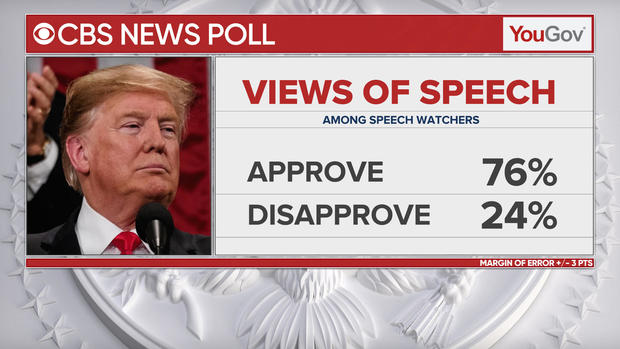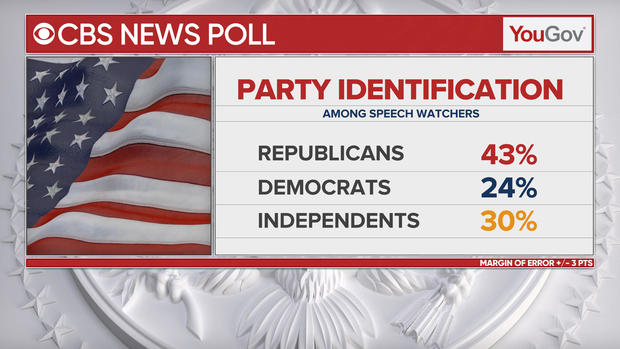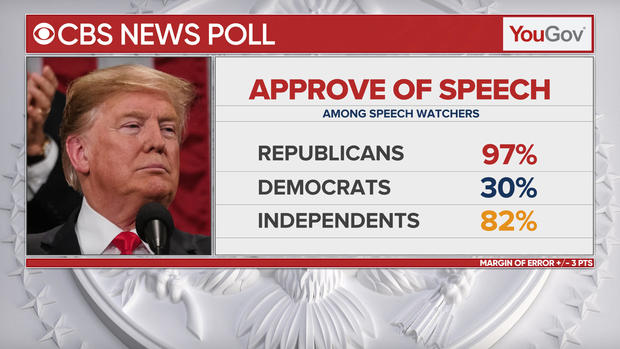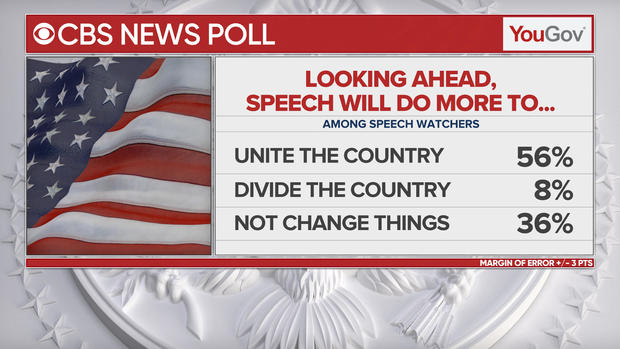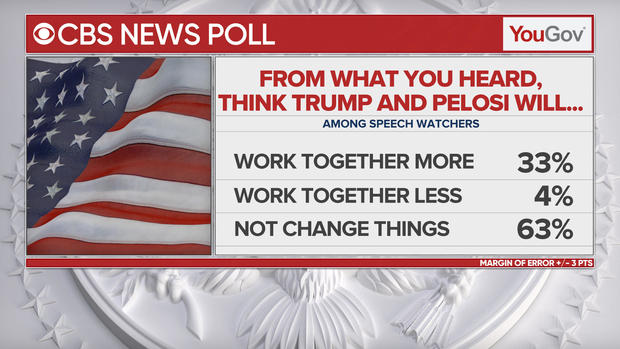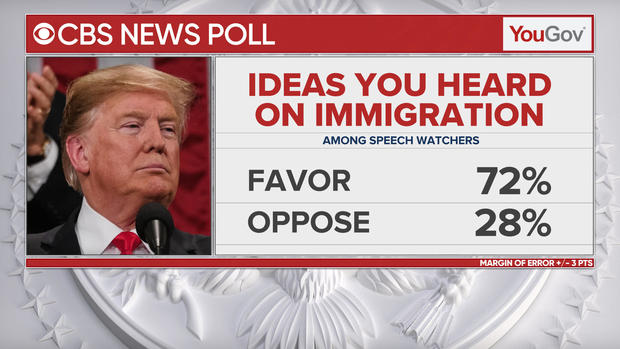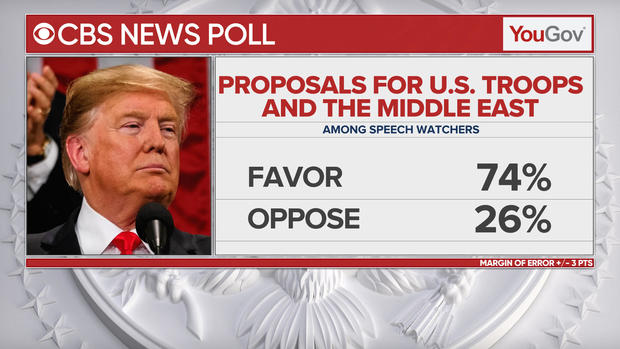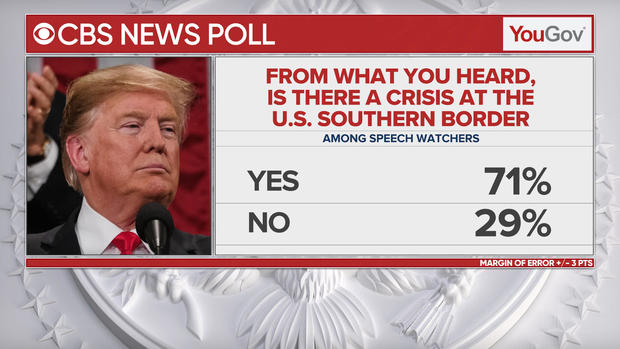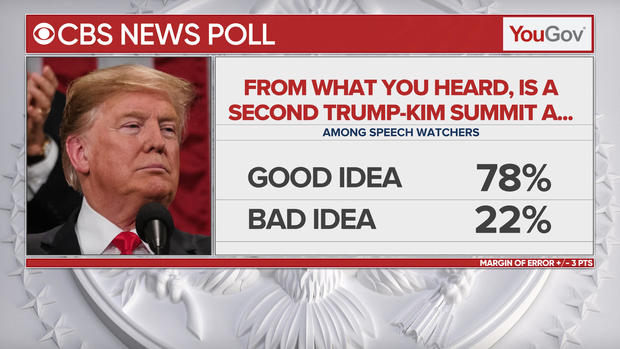Seventy-six percent of Americans who tuned in to President Trump’s State of the Union address Tuesday night approved of the speech he gave. Just 24 percent disapproved.
As is often the case in State of the Union addresses, the people who watched tonight’s speech leaned more towards the president’s own party, at least compared to Americans overall. In the latest CBS national poll released last month, 25 percent of Americans identified themselves as Republicans. Among those who watched Tuesday night’s address, that figure was 43 percent, and Republicans helped bolster the overall approval of the address.
And while 97 percent of Republicans approved of the speech, far fewer Democrats who tuned in did (30 percent). Most independents did approve.
Fifty-six of Americans who watched tonight feel the president’s speech will do more to unite the country, rather than divide it, although 36 percent don’t think it will change things much.
Democrats who watched the speech see things differently, however. Just 15 percent of Democrats think the president’s speech will unite the country.
On bipartisanship, just a third said what they heard in the speech made them think Mr. Trump and House Speaker Nancy Pelosi will work together more going forward. Sixty-three percent said there wouldn’t be much change.
On some of the specific issues the president touched upon, most viewers had a favorable opinion of what Mr. Trump had to say about immigration and what to do about U.S. troops in the Middle East.
From what they heard tonight, 71 percent of speech-watchers think there is a crisis at the southern border. Democrats who watched do not.
On North Korea, 78 percent of speech-watchers think a second meeting between Mr. Trump and North Korean leader Kim Jong Un is a good idea. Republicans are particularly likely to think it’s a good idea. Most Democrats (57 percent) don’t think it is, but 43 percent do.
The initial sample of U.S. adults was weighted according to gender, age, race, and education based on the American Community Survey, conducted by the U.S. Bureau of the Census, as well as the 2016 presidential vote. The final sample of post-address re-interviews was weighted to be representative of those who said they would watch the State of the Union address according to gender, age, race, education, and party identification. The margin of error is +/- 3 percent.

